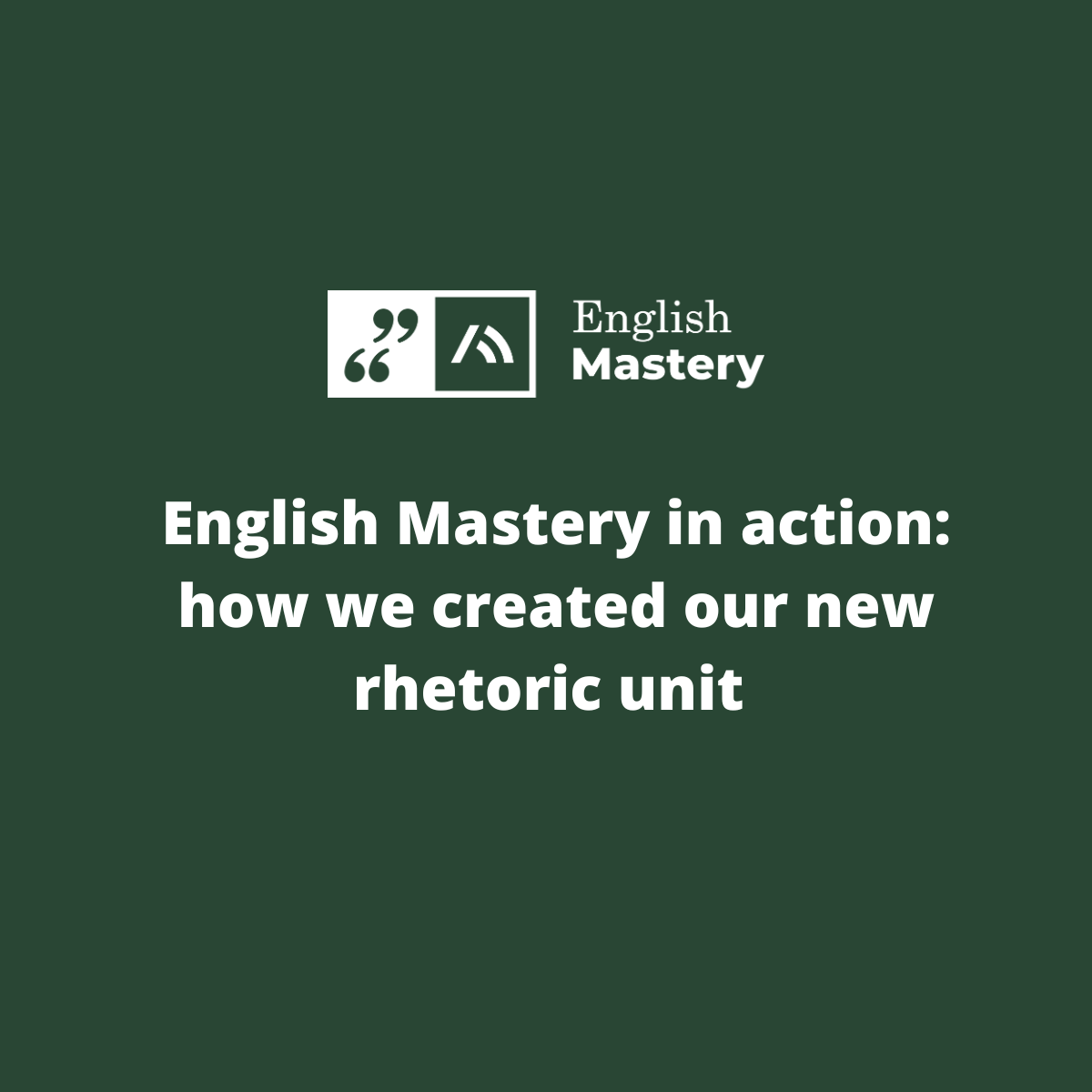
The background: how English Mastery works as part of Ark Curriculum Plus
A brilliant curriculum is only as good as its implementation.
When I joined Ark Curriculum Plus, I worked as a Development Lead, supporting schools across the country to implement and adapt the English Mastery curriculum for their context. This included working with many schools in multi-academy trusts, who were working with English Mastery across their schools.
I saw that implementation across a MAT needs to balance the delicate tension between meeting the unique needs of a school’s context and community, whilst also supporting a whole trust’s journey to improve English curriculum and pedagogy by unlocking the benefits of shared expertise, a common curriculum taxonomy, and aggregating resources and assessment data. Comparing student work across multiple Year 9 classes from different schools, or from primary to secondary as opposed to just one class or one department, is highly valuable, for example.
English Mastery works with 144 schools across the country, and we work with all contexts: startup free schools, schools which are part of, or joining, a MAT, and standalone academies and community schools. This means the programme – the resources, guidance, training, assessment materials, school support… - must be robust and flexible enough to support a diverse set of needs across our partner schools.
It's a challenging prospect when approaching curriculum design.
This is an outline of how we go about creating a new curriculum unit, including some of the strategies we use to consult, prototype, and roll out a unit.
Our feedback mechanisms
Feedback is a gift, and we are blessed with countless ways of gathering insights from English classrooms across the country. Here are just some of the ways we collate information from our partner schools:
Collating insights from feedback
One of the most interesting and hardest things I do as Head of English Mastery Secondary is distil and synthesise all these data from all these fora. Two things emerged as immediate priorities for us to address to increase the breadth and coverage of the curriculum: a more explicit curriculum space for speaking and listening and specifically for rhetoric.
These insights coincided with the publication of the Ofsted English Research Review, which also helped us to identify spoken language as an area for us to develop in the curriculum, particularly with a view to explicit guidance on successful exploratory and presentational talk in the classroom:

Perspiration and innovation
Now we knew that we wanted to develop a unit that focused on oracy and rhetoric, we re-visited all our feedback groups to stimulate discussion and generate ideas.
Working with Ark Schools and the English Mastery community means that we are privileged to work with an embarrassing number of bright, talented, provocative colleagues, and we had some great ideas about what the approach should – and shouldn’t – entail.
We decided on three challenges, commonly seen in classrooms but rarely leading to high quality outcomes, to tackle head on with an ‘avoid list’:
To achieve this, we knew we wanted to:
And so continued a dynamic cycle of developing the unit, presenting ideas, documents, resources, and models to our subject groups and getting their comments (constructive or otherwise) and undertaking that utterly joyful act of creating something from nothing.
The process is messy – just how we like it – but a rough sequence of production was underway, started by an intense day with a team of teacher experts on Network (INSET) day co-planning to:
The unit has now been shared with our Ark and other partner schools to trial. We eagerly await their feedback, knowing that the feedback cycle will take us back to the drawing board again. Curriculum is only as good as its implementation, but it is also a continual work in progress…